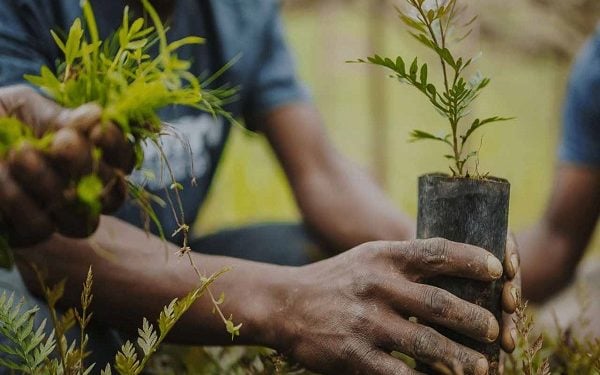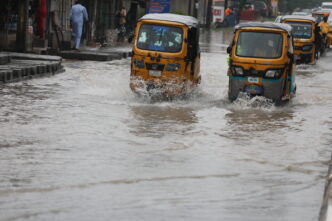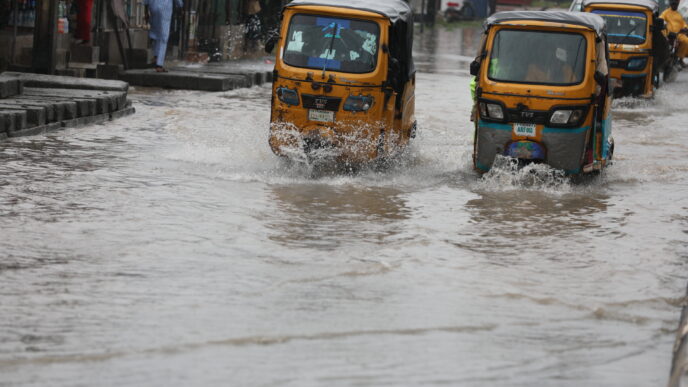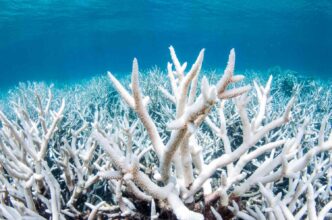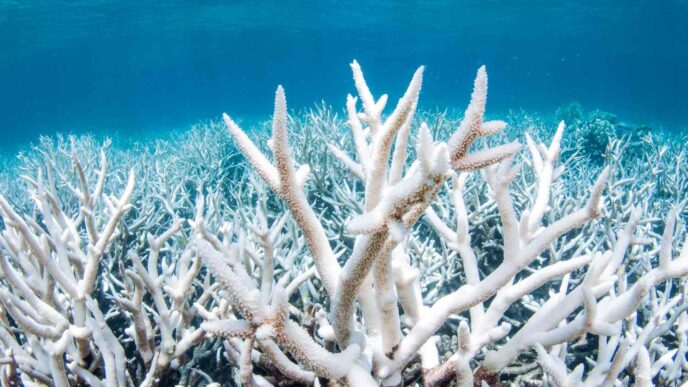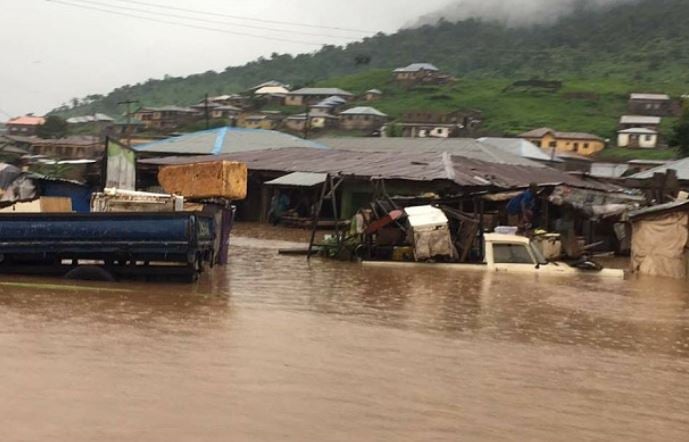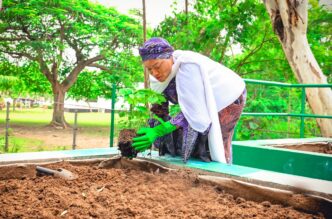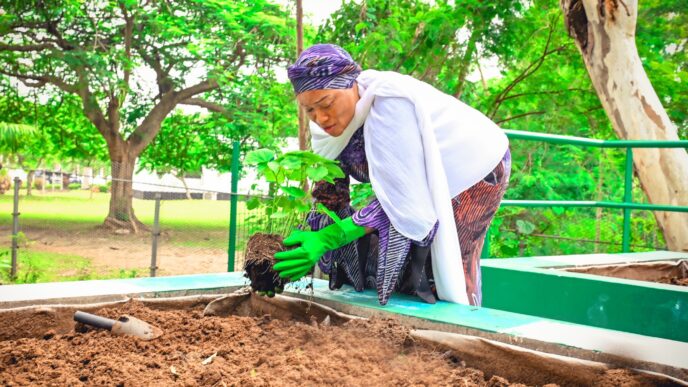A file picture of a tree planting exercise
Despite directly impacting our communities, health, and livelihoods, climate-related reports usually take a back seat to dominant news beats like politics and business.
Climate Watch aims to ensure you never miss important stories on climate change and actions being taken toward limiting its impact.
Here is a round-up of last week’s climate stories:
- Last week, Haruna Ibrahim, spokesperson of the federal ministry of environment, said 15 states could witness flooding as a result of torrential rainfall from June 21 to 25. Ibrahim listed Adamawa, Benue, Borno, Jigawa, Kaduna, Kano, Katsina, Kebbi, Kogi, Nasarawa, Niger, Plateau, Sokoto, Taraba, and Zamfara as states likely to be affected. Find out more here.
- Sustainability Pathways for Africa (SP4A), a non-governmental organisation (NGO), has called on the federal government to mitigate the impact of flooding in Mbiama, Ahoada-west LGA of Rivers state. Samuel Chime, SP4A’s advocacy lead, spoke on June 24 during a capacity-building outreach in the community. Chime said the event was held to educate the community on sustainable flood preparedness strategies and provide them with early warning information. Also, Ikenna Okorie, SP4A’s advocacy assistant, urged relevant stakeholders to assist Mbiama and other communities at high risk of flooding with timely measures to minimise the impacts. Read more here.
- The Kano government says it will plant 3 million trees to address climate change and environmental degradation. The initiative, tagged ‘Three million trees planting (3MTP)’, is in partnership with the Agro-Climatic Resilience in Semi-Arid Landscapes (ACReSAL) project. Dahiru Hashim, ACReSAL project coordinator, announced the tree planting campaign on June 28 during a press conference in Kano. Hashim said the project will beautify the state and secure its environment. He added that Kano is committed to its efforts to prevent indiscriminate tree felling as well as enforce penalties for violations. “The programme will involve avenue planting, afforestation projects, and shelter belt establishment, engaging community organisations, NGOs, and civil society groups,” Hashim said. “Training sessions will ensure effective tree planting and maintenance. Early efforts under the initiative include the planting of 5,000 seedlings along key roads such as State Road, Ahmadu Bello Way, and BUK Road. “The programme also plans to plant an additional two million trees through afforestation projects and the establishment of new shelterbelts to combat desertification and promote food security.”
Advertisement
